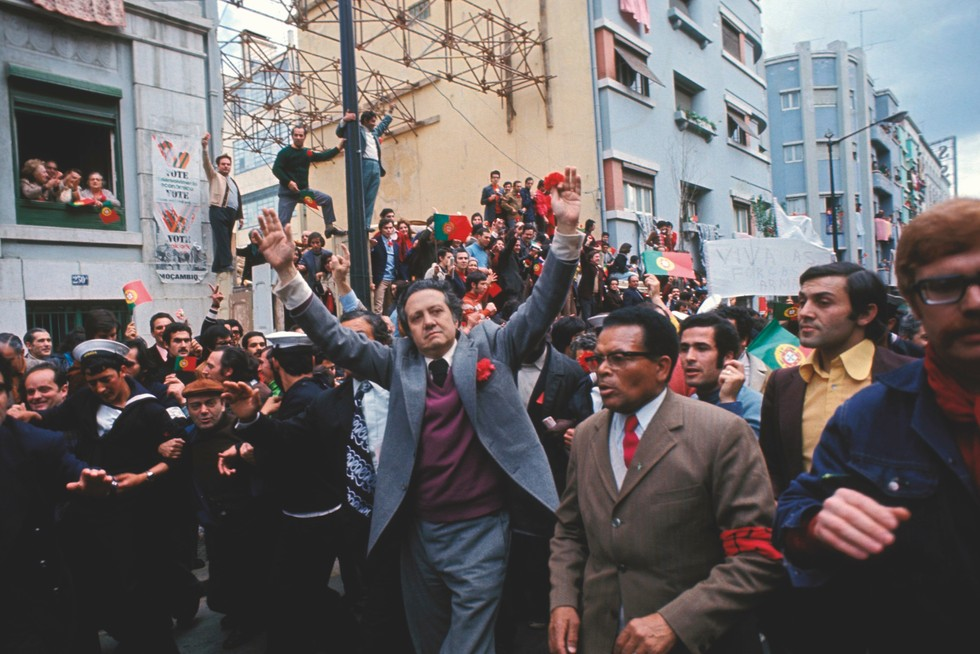“The People are no longer afraid” was the cover of one of the newspapers published on the 12th of May of 1974. On April 25, 1974 a coup carried out by the Armed Forces Movement (MFA), in disagreement with the colonial war that had been going on for thirteen years in Mozambique, Angola and Guinea, put an end to the Portuguese dictatorship, which lasted 48 years under the direction of Antonio Salazar and under the leadership of Marcelo Caetano (after 1968).
Thousands of people immediately left their homes, against the appeal of the military who led the coup – which insisted on the radio for people to stay at home -, especially in Lisbon and Porto, and it was with the people at their front door, shouting "death to fascism”, that the Government was surrounded in the Quartel do Carmo (Barracks of Carmo) in Lisbon; the doors of the prisons of Peniche and Caxias were opened for release all political prisoners; PIDE / DGS, the political police, was dismantled; the headquarters of newspaper of the regime, The Age, was attacked and the censorship was abolished.
The Portuguese empire would fall later in 1974, after mobilizing nearly two million forced workers (in the mines in South Africa, cotton plantations in Angola, among others) and a 13 year war – 1961-1974 – to prevent the independence of the African countries of Angola, Cabo Verde, Mozambique, Guinea-Bissau. Having been built to increase the profit of monopolies, as well as to discipline the workforce, the Portuguese dictatorship fell in the hands of the workers in April of 1974. A significant part of the property owners had to flee the country after the nationalizations which were meant to put an end to the workers’ control, which had become generalized starting February of 1975, especially in the banking sector, large metallomechanical factories, etc.
The ankylose structure of the empire – as well as that of its Bonapartist regime – led to the most important social rupture in post-war Europe – so great was the rupture and the length of it that no historian to this day has managed to determine how many workers’ meetings happened during the week after the coup by the MFA because there were hundreds, maybe thousands, and countrywide.
Megathreads and spaces to hang out:
- 📀 Come listen to music and Watch movies with your fellow Hexbears nerd, in Cy.tube
- 🔥 Read and talk about a current topics in the News Megathread
- ⚔ Come talk in the New Weekly PoC thread
- ✨ Talk with fellow Trans comrades in the New Weekly Trans thread
reminders:
- 💚 You nerds can join specific comms to see posts about all sorts of topics
- 💙 Hexbear’s algorithm prioritizes comments over upbears
- 💜 Sorting by new you nerd
- 🌈 If you ever want to make your own megathread, you can reserve a spot here nerd
- 🐶 Join the unofficial Hexbear-adjacent Mastodon instance toots.matapacos.dog
Links To Resources (Aid and Theory):
Aid:
Theory:


Argh I’ve got a 2017 with the dumb battery that also needs the proprietary SSD replaced. I was going to replace them but it’s so time consuming so I bought new, and now I feel bad and it’s just sitting in the corner un-fixed.